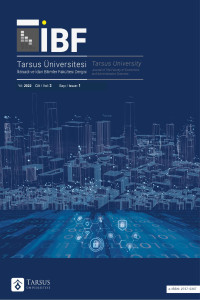LUTHER’İN DİRENME HAKKI ÜZERİNE DÜŞÜNCELERİNİN ZAMANSALLIĞI
Martin Luther’in direnme hakkı üzerine düşünceleri genellikle 1523 yılında yayımlanan Seküler Otorite Üzerine isimli çalışması ile incelenir. Bu çalışmasında seküler otoritelerin kutsallığını savunur ve sivil yönetimlerin iktidarını kısıtlayan doğa yasası teorilerini reddeder. Luther erken dönem yazılarında Hıristiyanlar için iki görev tanımlar: kurtuluşa ulaşmak için Tanrı’ya şüphe duymadan güvenmek ve kötü olsalar dahi seküler otoriteye itaat etmek. Ona göre yönetimlere güç Tanrı tarafından bahşedilir ve direnme hakkı yalnızca şiddet yoluyla direnecek otoritenin karşısındaki makama denk ya da üstün olmasıyla meşru olabilir. Ancak, 1530’larda Luther, direnme üzerine düşüncelerini radikal bir şekilde değiştirmiştir. 1531 yılında yayımladığı Sevgili Alman Halkına Uyarı çalışmasında tüm Alman prenslerini ve Hıristiyanları İmparator’a itaatsizlik yapmaya davet eder ve argümanlarını imparatorluk hukukundan ve doğa yasalarından örneklerle destekler. Bu değişimin arkasında, Alman siyasetinin ve İmparatorun tehditlerinin Luther’in düşünceleri üzerinde açık etkisi vardır. Luther bu süreçte Reform Kilisesini ve Evanjelik destekçilerini korumaya çalışır. 1530 sonlarında İmparator Protestanlara karşı saldırı planları yaparken Luther, fikirlerini erken dönem çalışmalarına zıt olarak tekrar inşa eder. Bu nedenle, Luther’in politik gelişmelere verdiği reaksiyonlarla şekillenen düşüncelerindeki zamansallık direnme hakkı düşünceleri üzerinden incelenebilir.
Anahtar Kelimeler:
Luther, Direnme Hakkı, Zamansallık, Reform Siyaseti
TEMPORALITY OF LUTHER'S THOUGHTS ON THE RIGHT TO RESISTANCE
The thoughts of Martin Luther on the right to resistance are usually examined with his work On Temporal Authority, published in 1523, in which Luther defended the sacredness of the secular authorities and rejected the natural law theories that limit the power of civil governments. Luther, in his early writings, identified two duties for Christians: trust God without any doubts to reach justification and obey the secular power even if it is evil. According to him, secular power is given to authorities by God’s will, and the use of force can only be allowable if the resister’s authority is equal or superior then the opponent’s position. However, by the 1530s, Luther changed his mind about the resistance, he invited German princes and all Christians to disobey the emperor and corroborated his arguments with imperial laws in 1531, Warning to His Dear German People. At the end of the decade, he radicalized the ideas on the resistance and even adduced from natural law. Behind this change, German politics and the emperor’s threats were quite effective on Luther’s thoughts. He tried to protect his reformed church and evangelical supporters in this process. After the 1530s, when the emperor planned to attack the Protestants, Luther reconstitutes his ideas that were the exact opposite of his early writings. Therefore, the temporality of Luther’s thoughts that were shaped with reactions of political facts can be examined with his arguments on the right to resistance.
Keywords:
Luther, Right to Resistance, Temporality, Reformation Politics,
___
- Alfsvag, K. (2015). Luther on Necessity. The Harvard Theological Review, 108(1), 52-69. Retrieved March 17, 2021, from http://www.jstor.org/stable/43297595
- Arnal, O. L. (1980). Luther and the Peasants: A Lutheran Reassessment. Science & Society, 44(4), 443-465. Retrieved March 15, 2021, from http://www.jstor.org/stable/40402275
- Cameron, E. (2006). The Turmoil of Faith. In E. Cameron (Ed.), The Sixteenth Century (pp. 145-173). New York: Oxford University Press.
- Cohn, H. J. (1979). Anticlericalism in the German Peasants’ War 1525. Past & Present, (83), 3-31. Retrieved March 11, 2021, from http://www.jstor.org/stable/650599
- Edwards, M. (1990). “Lutherschmähung?” Catholics on Luther’s Responsibility for the Peasants’ War. The Catholic Review, 76(3), 461-480. Retrieved March 17, 2021, from http://www.jstor.org/stable/25023340
- Gaebler, M. (2002). Luther on the Self. Journal of the Society of Christian Ethics, 22, 115-132. Retrieved March 10, 2021, from http://www.jstor.org/stable/23561574
- Goody, J. (2006). The Theft of History. New York: Cambridge University Press.
- Green, L. C. (1974). The Influence of Erasmus upon Melanchthon, Luther and the Formula of Concord in the Doctrine of Justification. Church History, 43(2), 183-200. Retrieved March 17, 2021, from http://www.jstor.org/stable/3163951
- Johnson, J. T. (2003). Aquinas and Luther on War and Peace: Sovereign Authority and the Use of Armed Force. The Journal of Religious Ethics, 31(1), 3-20. Retrieved March 19, 2021, https://doi.org/10.1111/1467-9795.00120
- Kolb, R. (2004). Martin Luther and the German Nation. In R. P. Hsia (Ed.), A Companion to the Reformation World (pp. 39-55). Oxford: Blackwell Publishing Ltd.
- Kuenning, P. P. (1987). Luther and Muntzer: Contrasting Theologies in Regard to Secular Authority within the Context of the German Peasant Revolt. Journal of Church and State, 29(2), 305-321. Retrieved March 19, 2021, from http://www.jstor.org/stable/23916457
- Le Goff, J. (2019). Ortaçağda Entelektüeller (M. A. Kılıçbay, trans., 3rd ed.). İstanbul: Türkiye İş Bankası Kültür Yayınları
- Lindberg, C. (2010). The European Reformations (2nd ed.). Oxford: Wiley-Blackwell.
- Luther, M. (2016). Seküler Otorite. In H. Höpfl (Ed.), Seküler Otorite Sivil Yönetim (İ. H. Yılmaz, trans., 67-121). İstanbul: Pinhan Yayıncılık.
- Ozment, S. (1980). The Age of Reformation 1250-1550. New Haven, CT: Yale University Press.
- Pelz, W. A. (2016). A People’s History of Modern Europe. London: Pluto Press.
- Seidler, M. (1993). Religion, Populism and Patriarchy: Political Authority from Luther to Pufendorf. Ethics, 103(3), 551-569. Retrieved April 25, 2020, from http://www.jstor.org/stable/2381754
- Seong, S. (2014). Christian Identity and Community – An Ethical Approach to Martin Luther. New Blackfriars, 95(1057), 324-339. Retrieved March 17, 2021, https://doi.org/10.1111/nbfr.12022
- Shoenberger, C. G. (1979). Luther and the Justifiability of Resistance to Legitimate Authority. Journal of the History of Ideas, 40(1), 3-20. Retrieved March 17, 2021, from http://www.jstor.org/stable/2709257
- Skinner, Q. (1978). The Foundations of Modern Political Thought (Vol. II, The Age of Reformation). Cambridge, UK: Cambridge University Press.
- Smith, P. (1911). The Methods of Reformation Interpreters of the Bible. The Biblical World, 38(4), 235-245. Retrieved April 19, 2020, from http://www.jstor.org/stable/3141640
- Trinkaus, C. (1949). The Problem of Free Will in the Renaissance and the Reformation. Journal of the History of Ideas, 10(1), 51-62. Retrieved March 15, 2021, from http://www.jstor.org/stable/2707199
- Yayın Aralığı: Yılda 2 Sayı
- Başlangıç: 2020
- Yayıncı: Tarsus Üniversitesi
Sayıdaki Diğer Makaleler
G-7 ÜLKELERİNDE İNOVASYON VE GÖÇ İLİŞKİSİ
LUTHER’İN DİRENME HAKKI ÜZERİNE DÜŞÜNCELERİNİN ZAMANSALLIĞI
SÜRDÜRÜLEBİLİR KENT KAVRAMINDA BELEDİYELERİN ROLÜ: MEZİTLİ BELEDİYESİ ÖRNEĞİ
SERBEST DOLAŞIM BAĞLAMINDA AVRUPA BİRLİĞİ’NİN YENİ UYGULAMA ARACI: DİJİTAL YEŞİL SERTİFİKA
